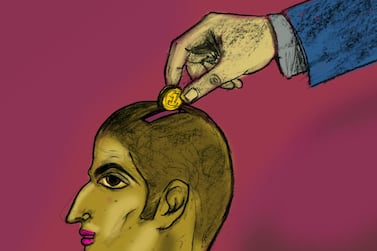The stock market bull run can’t last forever, and when it finally comes to an end it could pay to have a few defensive stocks in your portfolio.
Defensive stocks typically have healthy balance sheets, generate plenty of free cash and increase their dividends regularly, says Richard Nackenson, senior portfolio manager at fund manager Neuberger Berman in New York.
“Share repurchase programmes, cash accumulation, debt reduction, organic growth initiatives and selective acquisitions can all boost returns,” he says.
PE (price-to-earnings) ratios are calculated by taking share price and dividing it by earnings, which gives a rough valuation. The long-term average share price for the S&P 500 is around 15 times average earnings, and this is often seen as an indication of fair value. Currently, the index looks expensive, trading around double that amount, or 30 times earnings, according to the Shiller PE measurement. This is one reason why people are starting to seek out more defensive stocks.
In some cases, defensive stocks generate a negative return in the short term. However, because the fundamentals are strong, the share price is likely to recover and investors can benefit from a lower entry price.
We asked fund managers and analysts to highlight some top global companies that offer safe haven qualities in stormy times. Here are 12 of the best defensive stocks to own in a market crash.
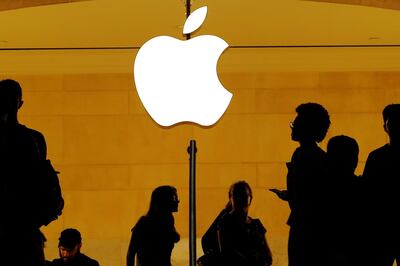
Apple
Technology giant Apple's recent fourth-quarter earnings beat expectations with revenue of $64 billion (Dh235bn), despite a dip in iPhone sales, thanks to strong performance in services and its fast-growing wearables businesses.
Mr Nackenson says it continues to return capital to shareholders, repurchasing $67bn worth of shares in the last year. “Apple should sustainably grow free cash flow per share as it expands its high margin services business,” he says.
Market cap: $1.18 trillion
PE ratio: 22.54
Dividend: 1.15 per cent
One-year return: 51 per cent
Broadridge Financial Solutions
Broadridge processes and distributes investor communications for almost every publicly listed US company.
Vijay Valecha, chief investment officer at Century Financial, says listed companies have to send investor communications regardless of what happens to stock markets. "Even at the height of the financial crisis in 2009, Broadridge had stable revenue,” he says.
Margins are increasing due to its transition to digital, as the fees are similar but costs are lower, he added.
Market cap: $14.18bn
PE ratio: 32.11
Dividend: 1.75 per cent
One-year return: 18.93 per cent
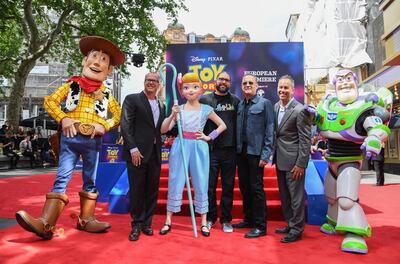
Disney
California-based mass media and entertainment conglomerate Disney is going strong, with fourth quarter revenue up a third to $19.1bn, boosted by the recent $71bn acquisition of 21st Century Fox.
Nicholas Hyett, equity analyst at UK wealth manager Hargreaves Lansdown, says its studios division benefited from the success of The Lion King, Toy Story 4 and Aladdin.
Debt has climbed following the Fox acquisition but Mr Hyett says “its new streaming service Disney+ could do great things for long-term profits".
Market cap: $273bn
PE ratio: 30.89
Dividend: 1.16 per cent
One-year return: 33.1 per cent
Franco-Nevada
Gold is a traditional safe haven in times of trouble and one way to invest in it is to buy mining company shares.
Russ Mould, investment director at UK wealth platform AJ Bell, says owning a gold mine can be less lucrative than people think. “Risks include bad weather, industrial unrest and political threats, as local authorities demand a bigger slice of the action in tax,” he says.
Canadian company Franco-Nevada looks less risky as it earns royalty streams from a portfolio of gold mines. “This gives you exposure to any upside in the gold price while offering protection from some of the downside risks,” he says.
Franco-Nevada has just posted record quarterly earnings and has relatively little debt, Mr Mould adds.
Market cap: $18.55bn
PE ratio: 64.82
Dividend: 1.02 per cent
One-year return: 43.81 per cent
HCA Healthcare
Healthcare is an attractive sector to invest in during a downturn, as people fall ill regardless of the economic cycle.
HCA Healthcare is the largest publicly traded hospital operator in the US, running 185 hospitals and 119 free-standing surgery centres, including in the UK.
Mr Nackenson says it has delivered impressive earnings results, driven by better-than-expected growth in admissions, and “expects healthy profit growth again in 2020”.
He says its shares are attractively valued, as the company should drive continued growth in earnings and free cash flow.
Market cap: $47bn
PE ratio: 14.25
Dividend: 1.15 per cent
One-year return: -2.5 per cent
Health and Happiness (H&H) International
This Hong Kong listed company manufactures and sells family nutrition and baby care products across China and internationally.
Mr Valecha says H&H has grown revenue consistently, helped by its brand strength. “New product launches and channel expansion should sustain that growth, even if the global economy slows,” he says.
Political worries in Hong Kong have overshadowed recent performance, but now could be a good entry point.
Market cap: $2.77bn
PE ratio: 16.75
Dividend: 1.41 per cent
One-year return: -31.47 per cent
Meiji Holdings
This Tokyo-listed company manufactures and sells dairy products, confectioneries and pharmaceuticals globally. “Brand recall, margin improvement, marketing capabilities and new value-added products should boost revenue,” Mr Valecha says.
Meiji credits its high PE to the sustainability of its business, he adds.
Market cap: $10.5bn
PE ratio: 19.47
Dividend: 1.88 per cent
One-year return: -15.24 per cent
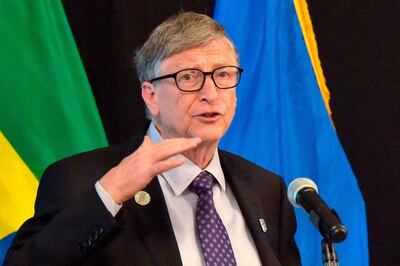
Microsoft
Mr Mould says software and web services giant Microsoft has built leading positions in computing, cloud services, search and gaming, and enjoys operating margins of nearly 40 per cent.
“It has $60bn in net cash and returned $7.9bn to stockholders via dividends and buy-backs in the last quarter alone,” he says.
His only worry is that Microsoft has performed too well. “With a PE of around 30 it can hardly be described as a bargain,” he says.
Market cap: $1.15tn
PE ratio: 30.30
Dividend: 1.35 per cent
One-year return: 38.54 per cent
Roche Holdings
Mr Mould says the ageing global population will drive revenue at Swiss-based global pharmaceuticals and diagnostics company Roche Holdings.
Roche has an annual research budget of nearly 9bn Swiss francs (Dh33.44bn), which should help replenish its drugs pipeline, and Mr Mould praises the "quality and dependability" of its earnings.
Market cap: $265bn
PE ratio: 22.32
Dividend: 2.82 per cent
One-year return: 23.34 per cent
Sands China
This Hong Kong-listed company is a leading developer, owner and operator of holiday resorts in Macao.
Mr Mould says Sands China’s fundamentals remain solid despite political unrest, and it offers a generous yield of more than 5 per cent. “It is investing heavily in its prime properties on the Cotai Strip to maintain its competitive position,” he says.
Visitor numbers should continue to mushroom following the opening of the Hong Kong-Macau-Zhuhai bridge, he adds.
Market cap: $38.7bn
PE ratio: 19.72
Dividend: 5.31 per cent
One-year return: 16.83 per cent
Stanley Black & Decker
This US company is a leading provider of tools and storage facilities, as well as commercial electronic security and engineered fastening systems.
Organic performance and share price growth remain strong, and its restructuring programme should save around $200 million a year.
“Prudent capital allocation, technological innovation and productivity initiatives should create further value,” says Mr Nackenson.
Market cap: $24bn
PE ratio: 18.24
Dividend: 1.75 per cent
One-year return: 22.93 per cent
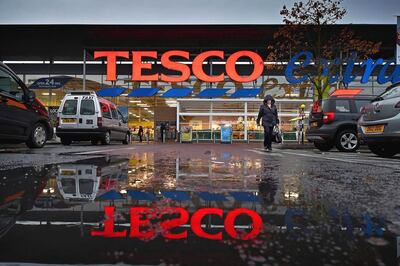
Tesco
The UK’s largest grocery chain, with almost 27 per cent market share, Tesco also operates in central Europe and Asia, with more than 6,800 stores worldwide.
It has come under pressure from German discounters Aldi and Lidl, but Mr Valecha says Tesco’s economies of scale should boost profits and improve dividends. “It has maintained margins despite low-cost competitors,” he says.
Market cap: $29bn
PE ratio: 18.24
Dividend: 2.95 per cent
One-year return: 19.17 per cent
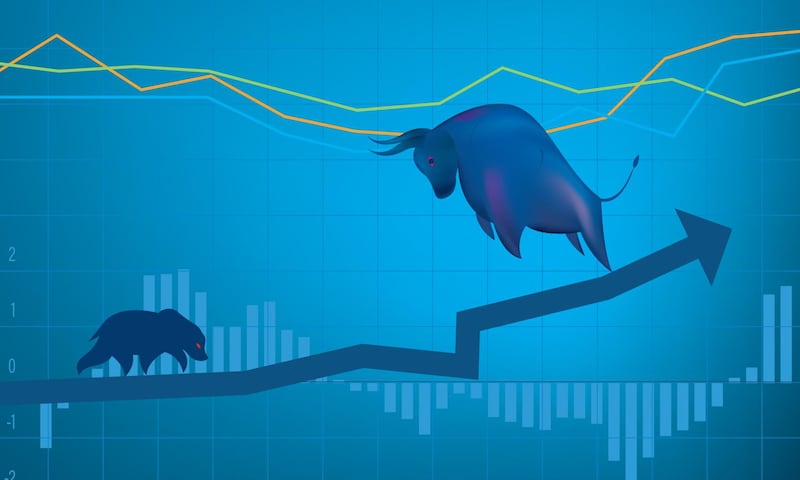
![The Apple store on 5th Avenue in New York. Bank of America Merrill Lynch analysts said the company's stock is 'on course for [an] 82.6 per cent gain' for 2019. Photo: Reuters](https://thenational-the-national-prod.cdn.arcpublishing.com/resizer/v2/O2UFRFUR6WTCIEHLKVZ4ZA6QYU.jpg?smart=true&auth=5c2108f77cf07ccddbb73f2886a0a4d49aac94b4556d9ac63be0cf6e8673adb1&width=377&height=251)
